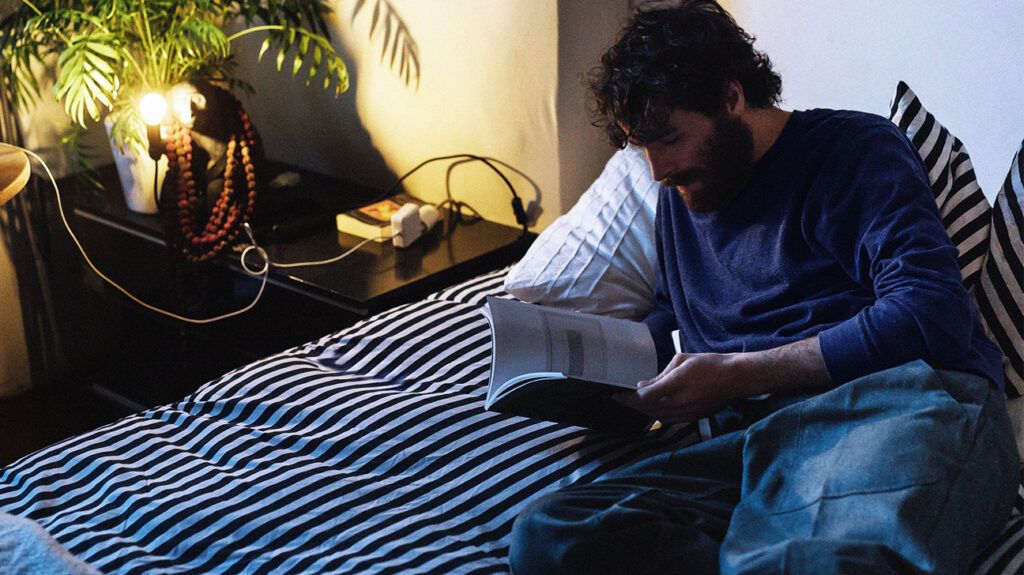There is currently no cure for narcolepsy. However, some natural treatments and lifestyle adjustments may help people manage symptoms.
Narcolepsy is a rare sleep disorder that causes people to fall asleep regularly during the day, even if they have had plenty of sleep the night before. The condition can have a severe effect on school, work, and social life.
Some natural approaches that individuals with narcolepsy may consider include vitamin and mineral supplements, homeopathy, and meditation, with over half using a supplement.
However, medications are available to treat many of the symptoms, and strong evidence does not support most natural treatments for narcolepsy. Despite this, there are lifestyle modifications and supportive therapies that might provide extra relief from narcolepsy’s more disruptive symptoms.

According to a
Small changes to a person’s sleep schedule can help to reduce daytime sleepiness for a person with narcolepsy. The
- Adding short naps to the daily routine: People might benefit from taking a scheduled nap when they usually feel especially sleepy. A 2023 review suggests naps of
15 to 20 minutes in length. - Going to sleep and waking up at the same time every day: Maintaining a regular sleep schedule, including on weekends, can help people with narcolepsy feel less tired.
- Avoiding caffeine, large meals, or alcohol before bed: These can all make sleep more difficult.
- Trying a pre-bedtime ritual: Relaxing activities, such as a warm bath, can help improve sleep.
These steps do not address the underlying cause but may improve the quality of life for people with narcolepsy.
Read more tips for how to sleep better.
The
A
Cardiovascular workouts are the most effective for improving heart and lung health. Examples of these exercises might
- running
- cycling
- swimming
- water aerobics
- vigorous dancing
- playing sports such as volleyball or touch football
- walking
- chores such as gardening, washing windows, or pushing a stroller
According to a
The review recommended the following steps, including:
- wearing clothing with thermal layers
- consuming warm drinks and meals where possible
- using a fan to cool the hands and feet
Narcolepsy can have profound effects on daily life, interfering with work and social situations. It can be helpful to talk with friends and family about the condition and educate them about the possibility of daytime sleepiness or cataplexy.
Employers
People need to inform their employers about narcolepsy. The Americans with Disabilities Act (ADA) mandates that employers must accommodate the needs of employees with the condition. These needs
A healthcare professional
Read more about narcolepsy as a disability.
Support groups
It can also help to find support groups to discuss the stigmas around narcolepsy and difficulties balancing social and work responsibilities with the sometimes limiting nature of the condition.
Narcolepsy Network can help connect people with their nearest support groups and also provide online groups for those who do not live near one.
Some research has linked low levels of certain vitamins to narcolepsy. These include:
- Vitamin D: A 2018 review regarding the link between vitamin D deficiency and sleep disorders stated that studies have shown an inverse connection between the deficiency and a higher risk of sleep disorders.
- Vitamin B12: A limited
2022 study found that people with narcolepsy had a higher risk of low vitamin B12 levels. - Vitamin E: A
2021 paper suggested interactions between vitamin E and a neurotransmitter called orexin. Low orexin levels are among the underlying causes of narcolepsy. The researchers suggest that vitamin E may have properties that lead to the creation of more orexin.
However, this research either has small sample sizes or has not tested the direct effects of vitamin supplementation on narcolepsy symptoms. A
Healthcare professionals
People can take sodium oxybate to manage muscle limpness, although healthcare professionals recommend taking this in bed as its effects set it rapidly.
Healthcare professionals also prescribe antidepressant medications, including:
- tricyclic antidepressants
- selective serotonin reuptake inhibitors (SSRIs)
- serotonin-norepinephrine reuptake inhibitors (SNRIs)
Read more about medications for narcolepsy.
People who believe they may be experiencing symptoms of narcolepsy can consider speaking with a healthcare professional.
It could be useful to keep a sleep diary that tracks nighttime sleep hours and how often a person finds themselves falling asleep during the day.
Symptoms to look out for might include:
- excessive sleepiness
- regular sleep attacks
- cataplexy
- episodes of sleep paralysis
People with a diagnosis of narcolepsy also need to speak with a healthcare professional if symptoms are interfering with daily life or contributing to mental health problems, such as depression. They can recommend ways to reduce its effects on work and relationships.
People with narcolepsy can take steps in daily life to reduce its effects. This might include scheduled naps, avoiding food and drink too close to bedtime, and relaxing rituals before sleeping.
Exercise and emotional support are also important for reducing daytime sleepiness and limiting the mental health effects of narcolepsy.
Medications for narcolepsy can treat daytime sleepiness, sleep attacks, and cataplexy. A person can speak with a healthcare professional if excessive sleepiness is interfering with daily function or if narcolepsy is contributing to depression or anxiety.
